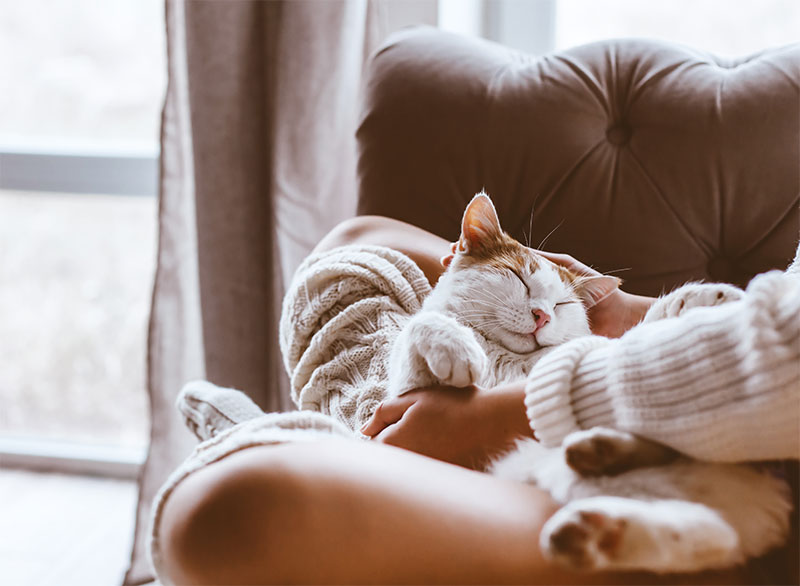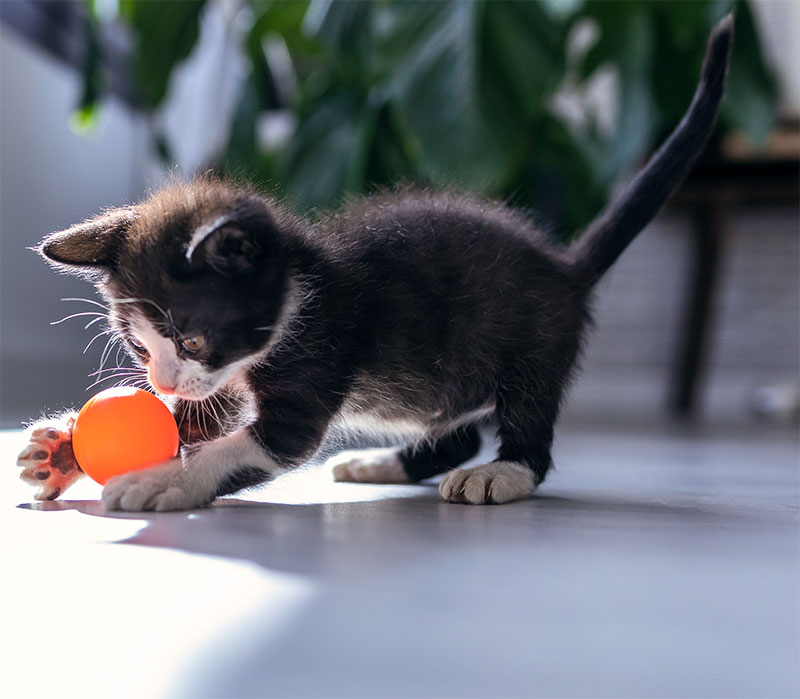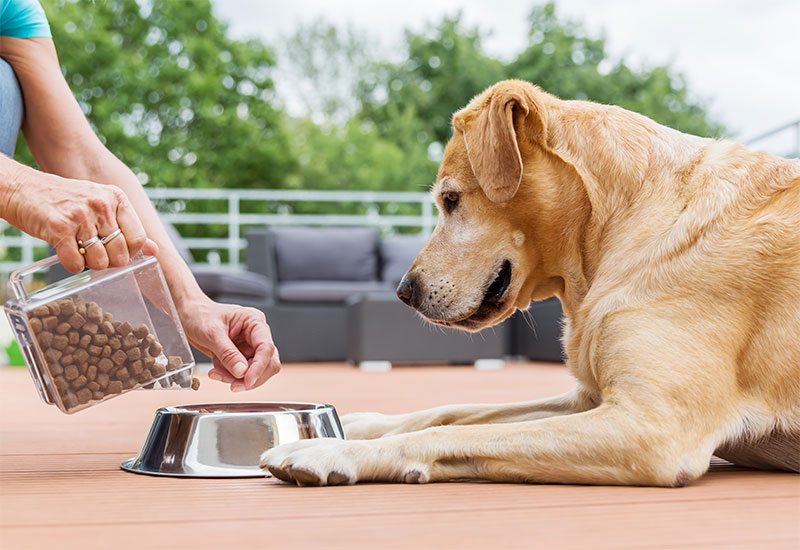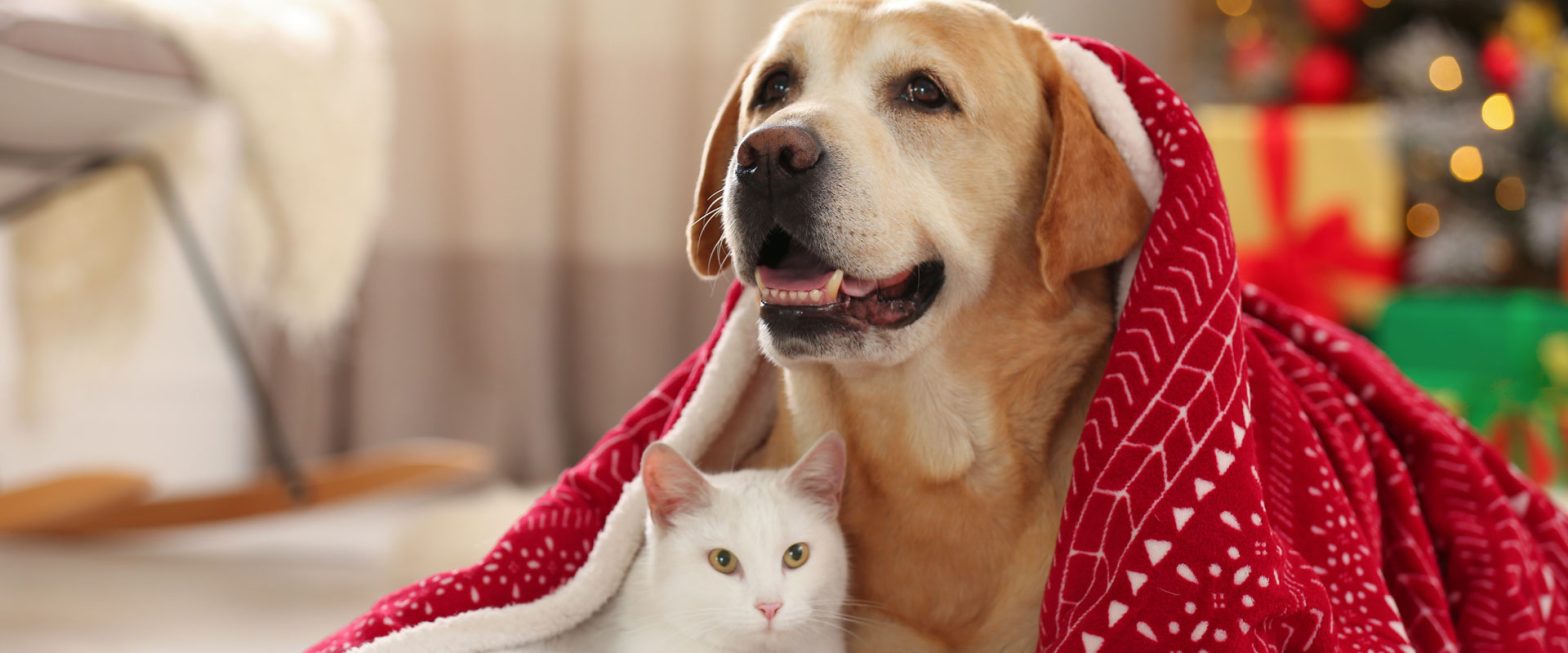
Pet Care Advice for Cold, Winter Weather
As winter draws near, the temperature drops and the snow begins to fall. These changes in the weather necessitate adjustments to your pet’s care to ensure safety throughout the season.
5 Winter Pet Care Tips
1. Prioritize Shelter
We recommend keeping pets indoors during winter – especially when there’s any kind of precipitation or the temperature drops significantly. If pets are outside, be sure they have warm, dry shelter out of the wind, snow, sleet, and rain.
2. Don't Go Off-Leash
Winter creates dangers that don’t exist in warmer weather, and pets should be kept on a leash when outdoors. For example, bodies of water might not be visible when covered with ice but the ice might not be strong enough to support your pet’s weight. Cars are also not able to stop as quickly, increasing the danger of a pet being hit by a car.
3. Protect Paws
A pet’s paws can become raw, cracked, and cut in cold weather and on snow and ice. Use pet-safe balms to hydrate the paw pads and try out a pair of winter booties or dog socks on walks.
4. Minimize Baths
Water can dry out and irritate your pet’s skin during the winter. Plus, it’s difficult to get pets completely dry which can result in hypothermia when they go outside.
5. Keep Pets Entertained
Provide indoor activities like snuffle mats, puzzle toys, hide and seek, and other indoor games.
6. De-Ice Safely
Certain de-icers are toxic for dogs, and salt can result in painful irritation to the paws when walked on for too long. Always wash your dog’s paws when you come inside from an outdoor walk in winter.


Talk to Our White Haven Veterinarian About Nutrition and Activity Adjustments for Winter
During winter, pets tend to be less active, since it’s so cold outside. As a result, they don’t burn as many calories each day. Other pets that spend more time outside during the winter might actually burn more calories as a result of needing to keep their bodies warm. These changes to your pet’s caloric needs should translate to changes in their diets to maintain their health and a normal weight.
Our veterinarians can help you modify your pet’s diet for the changing seasons to ensure their nutritional needs are met while they consume the proper amount of calories. To learn more, we welcome you to schedule an appointment at White Haven Veterinary Hospital today.








